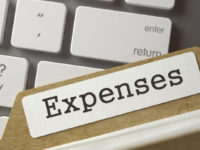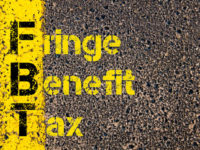Every Tax Time, the ATO focusses on certain hotspots where taxpayers are prone – either accidentally or deliberately – to make errors.
So, what is on the ATO’s list this year? Well, essentially, they’re looking at two main areas; work-related expenses and claims made by investment property owners.
The ATO recently claimed that there was an $8.7 billion shortfall between the tax individuals are expected to pay and the tax they actually are paying. The ATO believes that Work-related expenses claims are the biggest element in that “tax gap” and have signalled that they’ll be looking closely at these deductions this year. In particular, they’ll be looking closely at:
- Claims for work-related clothing, dry cleaning and laundry expenses.
- Deductions for home office use, including claiming for “occupation” costs like rent, rates and mortgage interest, which are not allowable unless you’re actually running a business from home.
- Overtime meal claims.
- Union fees and subscriptions.
- Mobile phone and internet costs, with a particular focus on people who are claiming the whole (or a substantial part) of the bill for their personal mobile as work-related.
- Motor vehicle claims where taxpayers take advantage of the 68 cent per kilometre flat rate available for journeys up to 5,000kms (the ATO is concerned that too many taxpayers are automatically claiming the 5,000km limit regardless of the actual amount of travel).
- Incorrectly claiming deductions under the rule that allows taxpayers who have incurred work-related expenses of $300 or less in total to make a claim without receipts (the ATO believes that some taxpayers are claiming this – or an amount just less than $300 – without actually incurring the expenses at all).
Our top tip before making any claim is to be confident that you understand what you can and can’t claim and that you have the necessary proof (invoices, receipts, diaries, etc) that you actually incurred the expenditure and that it was work or business related.
Property spotlight
The other main focus this year is on people who make deduction claims in relation to investment properties and holiday homes. The ATO recently announced that in a series of audits, they found errors in 90 per cent of returns reviewed. So, this year, expect them to focus on the following:
- Excessive interest expense claims, such as where property owners have tried to claim borrowing costs on the family home as well as their rental property.
- Incorrect apportionment of rental income and expenses between owners, such as where deductions on a jointly owned property are claimed by the owner with the higher taxable income, rather than jointly.
- Holiday homes that are not genuinely available for rent. Rental property owners should only claim for the periods the property is rented out or is genuinely available for rent. Periods of personal use can’t be claimed.
- Incorrect claims for newly purchased rental properties. The costs to repair damage and defects existing at the time of purchase or the costs of renovation cannot be claimed immediately. These costs are deductible instead over a number of years.
The key tip is to ensure that property owners keep good records. The golden rule is; if you can’t substantiate it, you can’t claim it, so it’s essential to keep invoices, receipts and bank statements for all property expenditure, as well as proof that your property was available for rent, such as rental listings.
Mark Chapman, Director of Tax Communication, H&R Block
















